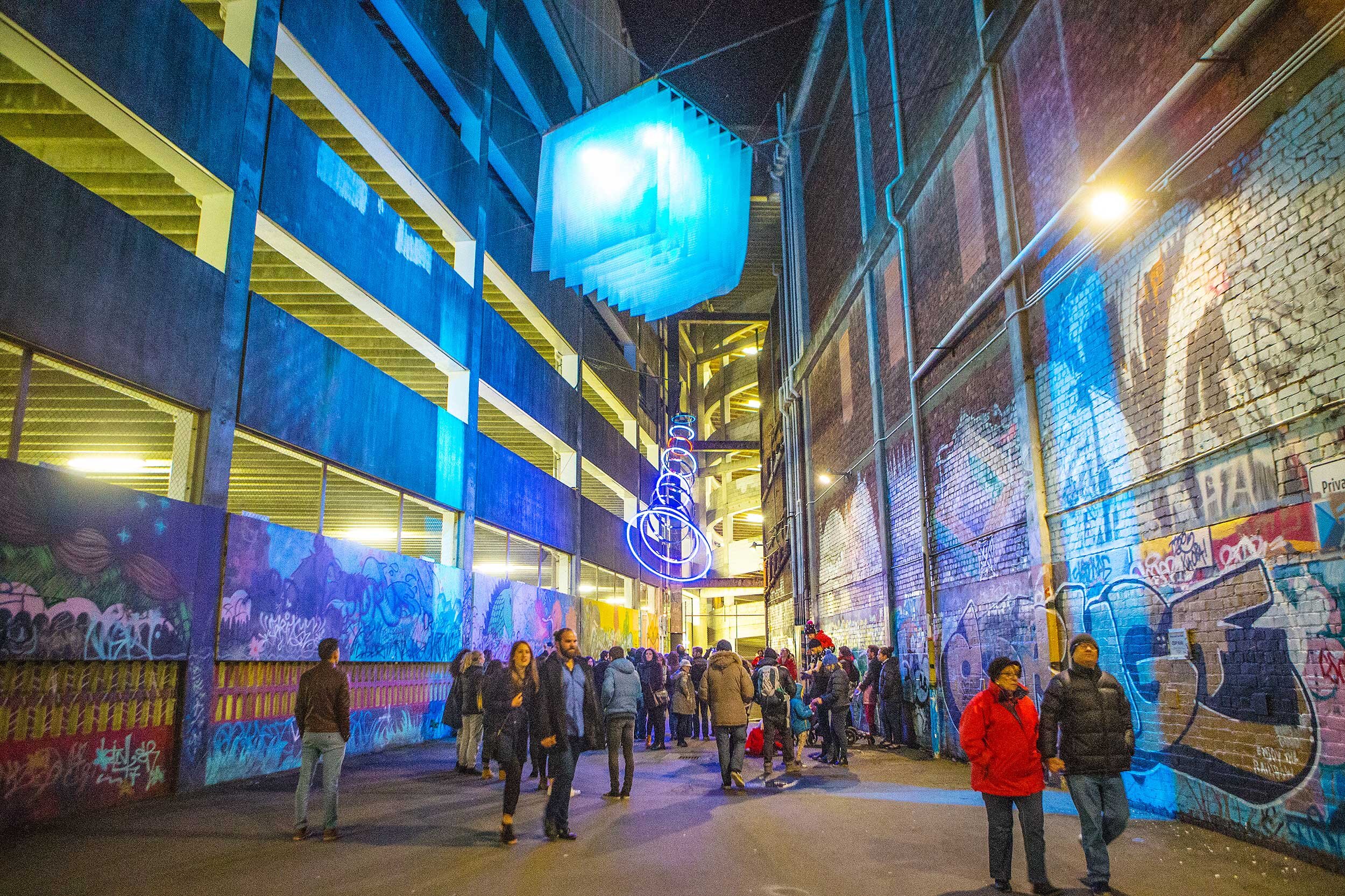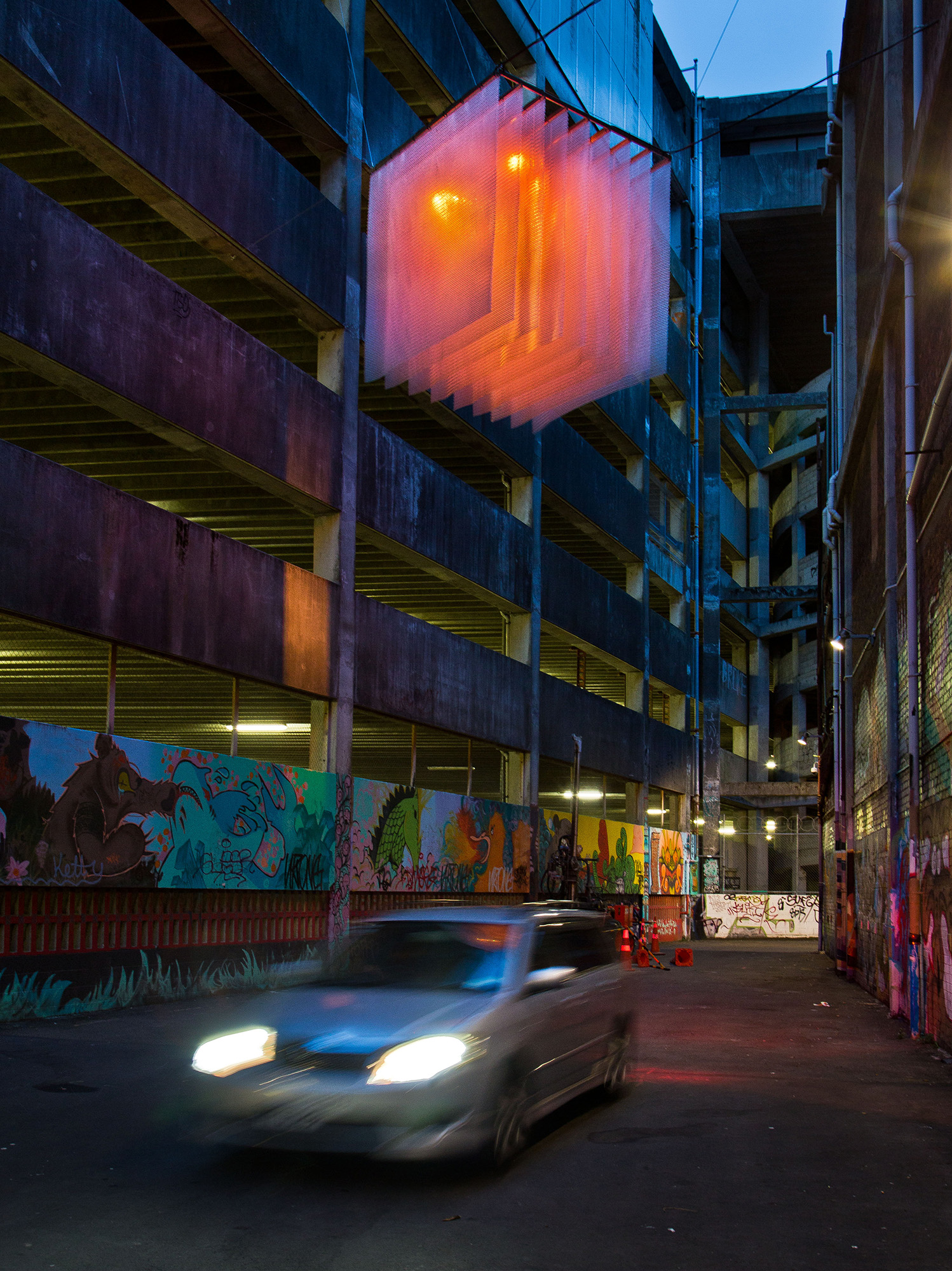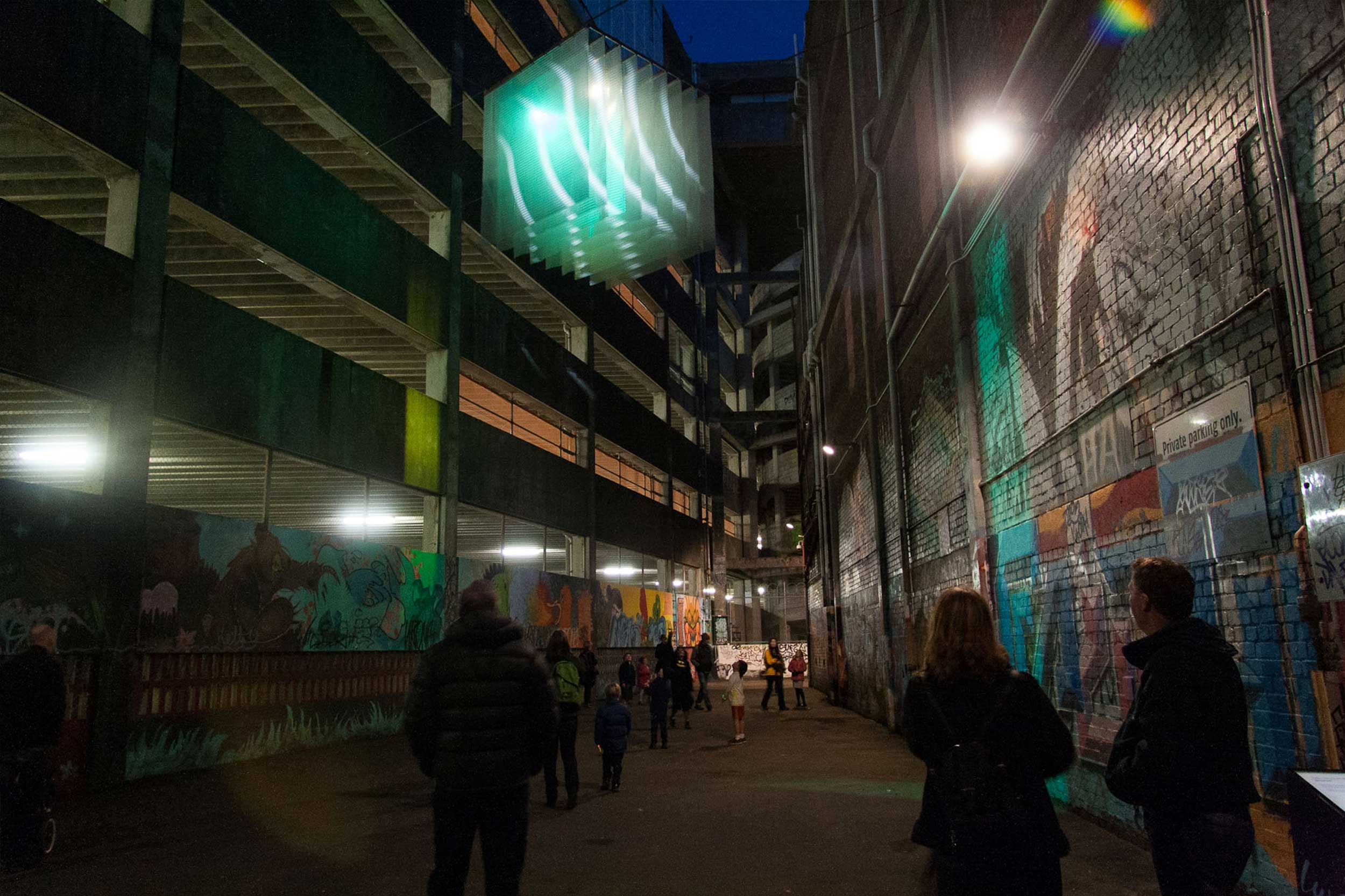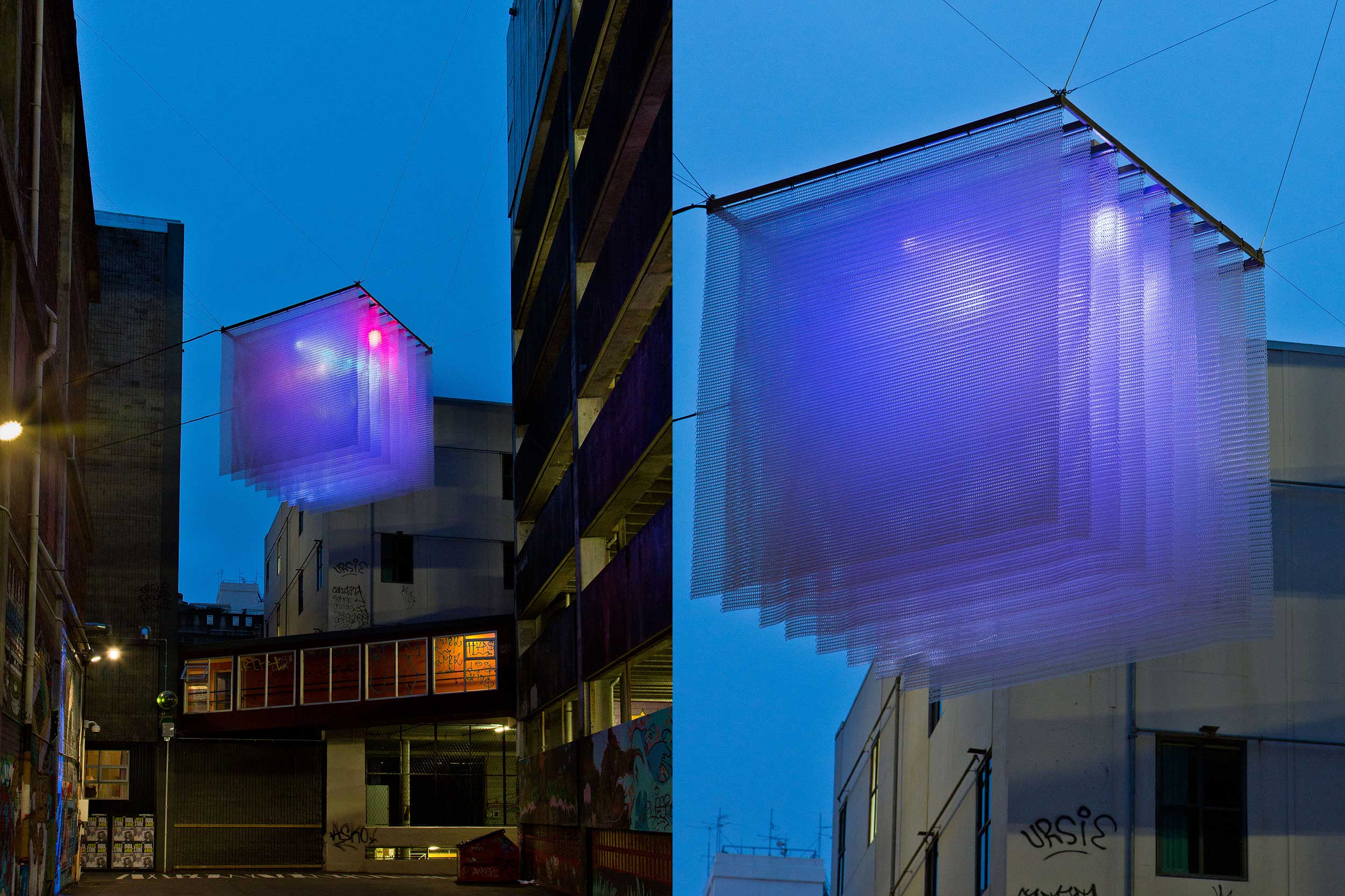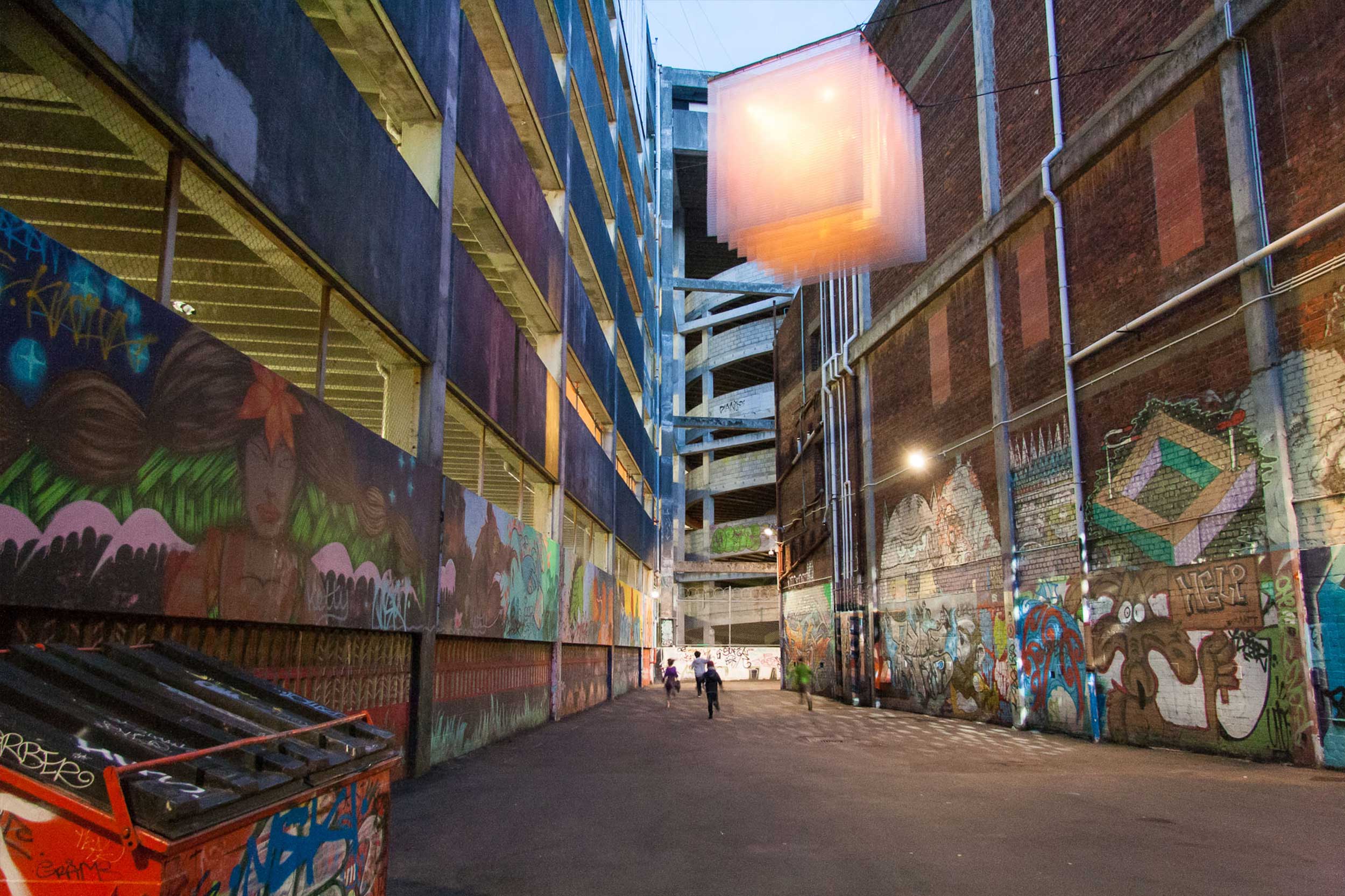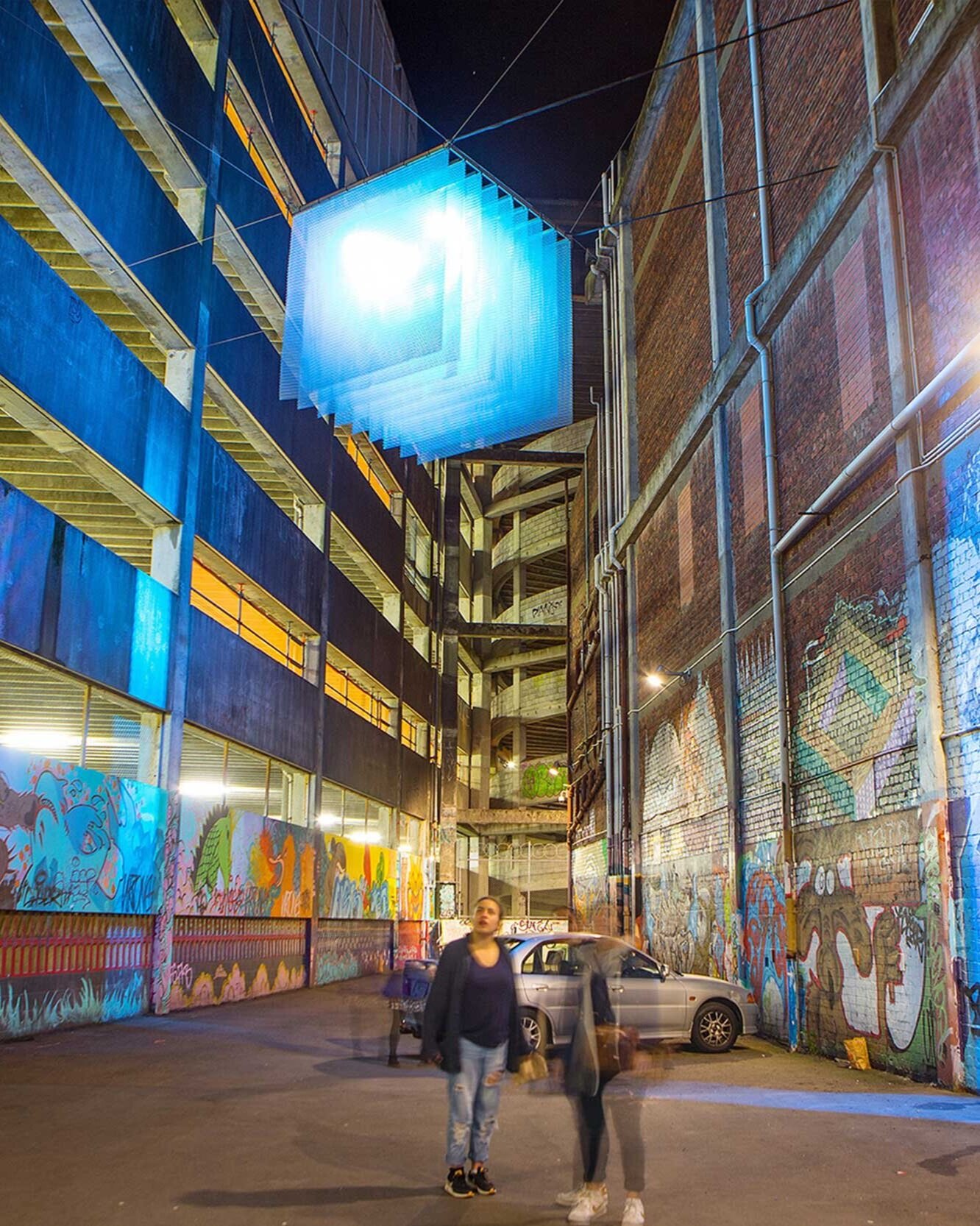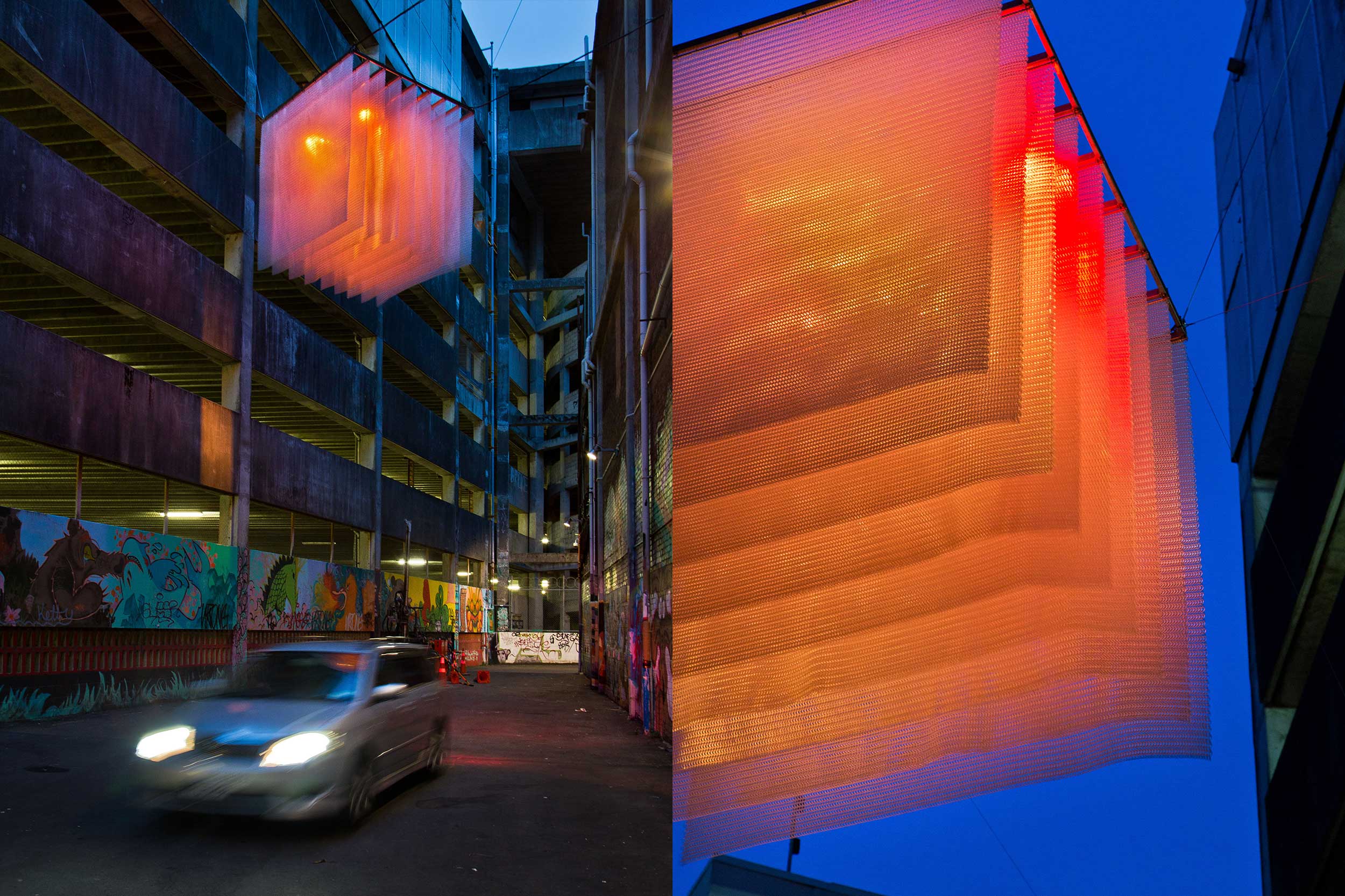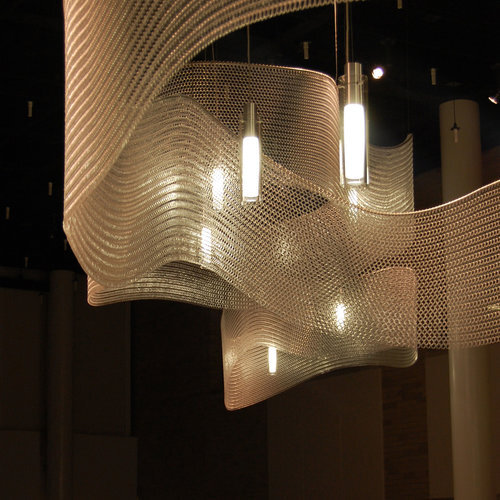Lighting Feature for Opera House Lane
The chandelier creates an elegant and ethereal juxtaposition with the concrete of the graffitied alleyway.
Wellington City Council approached Stephenson & Turner architects to work on a lighting installation for Opera House Lane. The project was part of an initiative to make Wellington’s urban spaces livelier and safer.
Stephenson & Turner’s lighting designer, Pontus Hammarbäck, took on the challenge to revitalise the lane and make it more appealing by installing colour-changing, movable light fittings capable of creating a playful and interactive environment. Pontus used light to draw attention to a chandelier made from Kaynemaile which is suspended between two buildings above the alleyway. The chandelier was constructed using nine square pieces of Kaynemaile which are hung from a steel frame. The Water Clear mesh is ideal for projecting lighting effects onto and through the mesh. The chandelier creates an elegant and ethereal juxtaposition with the concrete of the graffitied alleyway, reinventing this once unwelcoming lane into a space for pedestrians to pass through and enjoy the magic of the lights.
Awards
Royal Astronomical Society New Zealand, Award of Excellence, 2014
IES Lighting Design, Award of Excellence, 2014
Nominated for city.people.light People’s Choice Award, 2014
Awarded city.people.light: Special Mention, 2014
Short listed in Lighting Design Awards (LDAwards) International Project (Exteriors) category, 2015
Project Details
Design Stephenson & Turner
Project Opera House Lane Lighting Installation
Location Wellington, New Zealand
Mesh Colour Water Clear
Photographer Paul McCredie & Jeff McEwan
Mesh Colour
